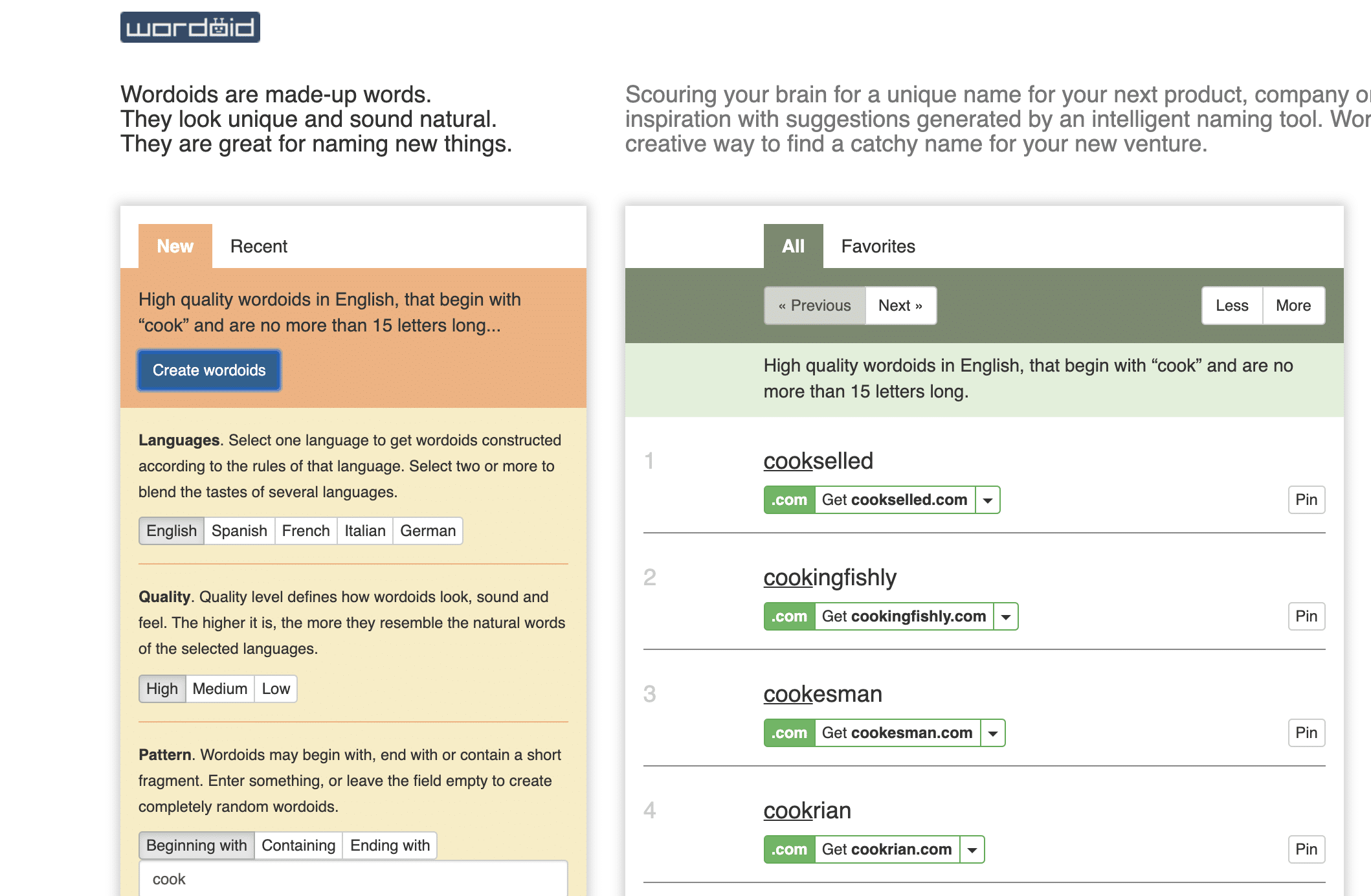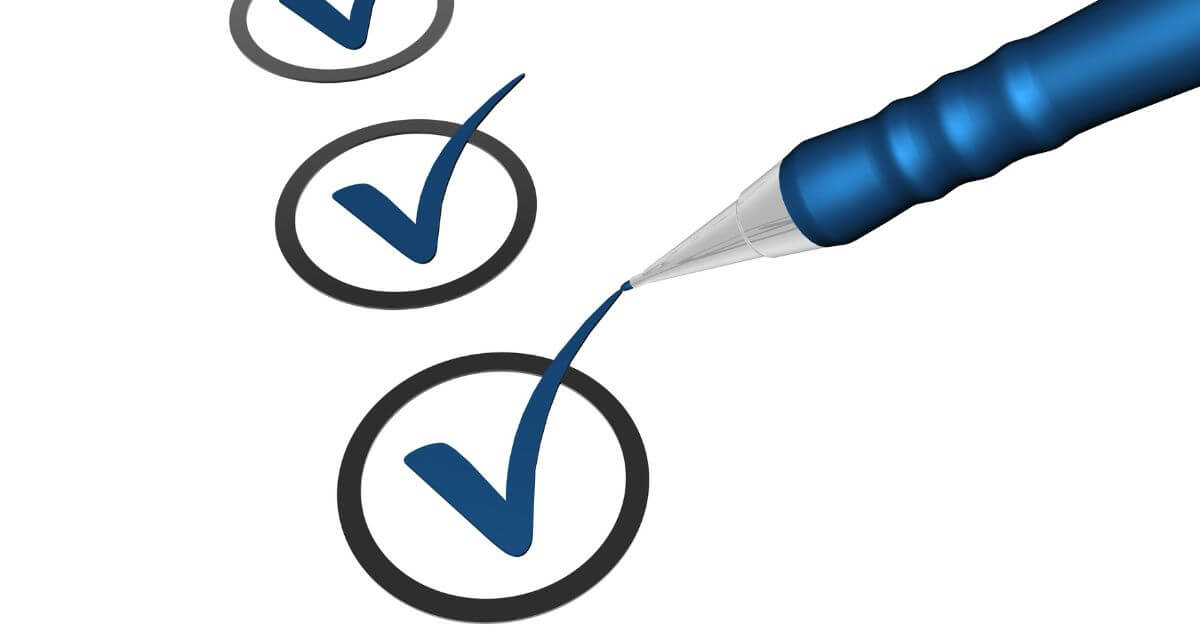How to choose the best domain name (aka URL) for your website sounds like an easy concept. However, sometimes it can feel like a daunting task. There are over 1.94 billion websites on the Internet and growing and sometimes the choices feel limited. Why is your domain name so important?
- It’s the first impression. Your URL (or domain name) is the first thing visitors will see. It will be the name you give your customers to go check out your services and blog articles. The best domain name for your website can leave a positive and lasting impression. The wrong domain name can make visitors uneasy to even click on your URL and trust your business.
- It defines your brand. Your domain name is an opportunity to increase your brand recognition.
- It affects SEO. Keywords in your domain name can help your SEO rank. For example, I have the keyword “web designs” in my URL as I want to rank higher for web design.
Let’s break down the most important aspects to look at on how to choose the best domain name for your website.
Table of Contents
Brandable Over Generic
Your domain name is not only a name but it represents your brand. Your domain name is how visitors find, remember, and share your company via word of mouth, social media, email, etc. The domain name is an important aspect of your overall brand. What do you want to be known as? A branded domain name is unique, clear, short, meaningful, catchy, inspiring, and stands out from the competition. A generic domain name is stuffed with keywords and is unmemorable. Choose brand over SEO, if you have to choose between the two.
Also, choose a brandable domain name that lets you expand your business for the future. For example, Constant Delights is a gardening blog, but its domain (constantdelights.com) does not include anything about garden. It opens up opportunities in the future where the owner could expand her site’s topic without damaging the site’s identity.
It is also poor branding practice to have a company name that doesn’t match the domain name. Using the same URL name that matches your company name will help people find your website more easily. When they hear about your company and type your name into a search engine or the browser address bar, they will find it easier. Consistency is the key and will help you grow a memorable and strong brand.
Let’s say your business or blog is based upon being a Gourmet Chef. The URL gourmetchef.com, which is a touch boring, is taken. Let’s look at some alternates such as the aninspiredchef.com, farmerchef.com, thechefadrienne.com, SweatTearsAndFood.com, jessicamariecooks.com The more creative and unique, the better for your brand. Adding your name is a great way to add branding to your business.
Let’s look at some boring and generic domain names that would not represent your brand well: unnamedchef.com, shecooks.com, betterchef.com
Consider Using Keywords but go for your brand name rather than stuffing your URL with keywords.
If your business focuses on a geographic region or city, try to put the location into the name of your domain. For example, you are a Cincinnati chef. Try the domain name cincinnatichef.com Put the most important keyword for your industry in the domain name, if possible.
If no keywords are available, go for your brand name rather than stuffing your URL with keywords. The brand is more important than a domain name stuffed with keywords.
Perform a Google search for your brand. What type of pages and domains are already ranking for the name you are thinking of choosing. If you are going to be competing with many powerful domains, you might struggle to even rank for your own name.
Pick a name that is unique and easy to rank for.
Keep It Concise
In general, when it comes to the length of your domain, shorter is better. GoDaddy recommends a domain name that is less than 15 characters. If you have to keep spelling it or re-communicating it then it is not a good choice. Easy to spell and communicate is best.
Easy to Type
I get asked often why I did not go with my name ‘Jessica Rhoades’ as my web design company brand name. My last name is difficult to spell and has a ton of variations. Whenever I chat with someone on the phone I consistently have to spell my last name and usually have to spell it a couple of times as there are so many variations of ‘Rhoades’ such as Rhoads, Rhodes, Roads, Rhods, Rodes, etc. It is not an easy name to type. Consider a name easy to type.
Easy to Pronounce
Make sure what you create can be easy to pronounce and not misconstrued as something else. The funniest and interesting example I can think of was from an episode of Arrested Development on Netflix using “A new start”. They shortened “new’ to “nu” and the URL would be anustart.com. Excuse the language, but if you separate the words differently you get a totally different meaning than what was hopefully intended. Make sure you can pronounce your domain name correctly and it doesn’t accidentally spell other or embarrassing words!
Avoid Hyphens and Numbers
It may be tempting to substitute words or parts of a word in the name with numbers or to do so just to be a little different. People are used to domains without hyphens, which makes it difficult to remember where and if a hyphen was in the word.
Hyphens and numbers also make it hard to say, remember and type when creating a branded domain name. There are a few exceptions to this rule, such as 99designs.com. The number is at the front and a unique branding name. Examples of domains that have numbers not easy to remember such as gr8t.com. When giving someone your URL, you would need to say each letter, making it difficult to say and spell. Think about your target audience, how they would primarily communicate your web address and how you intend to advertise.
A few rules to using are number are: If it’s a word, use a word and if it’s a number, use a number.
Consider buying the Common Misspellings of Your Domain
Is the domain name you are thinking of purchasing easy to misspell? Consider purchasing the misspelling of the name. Look at the company Fiverr, where you can hire freelance professional services for your business, whose URLs is www.fiverr.com That double “rr” is difficult to remember. The company recognized this and purchased the www.fiver.com to redirect to the company name www.fiverr.com.
Not sure of the types of domain name misspellings could happen with your URL? Check out the misspellings lookup on Xpidea. Type in your URL and it comes up with 100’s of possible misspellings. See which one resonates and consider purchasing the misspelling.
Check to see if the website was banned by Google
If a previous domain owner violated Google terms and services and was banned from Google searches, you’ll want to know before investing in the name. I’m not 100% confident on the reliability but check the Google Banned Site Checker. It may help determine if a site was banned by Google. The only real way to know if a site is banned by Google is that Google would send the webmaster of the URL a notice.
Check the Domain History via Wayback Machine
Be sure to confirm if the URL you are choosing was used in the past. To see how a page changed or know when a page disappeared, look at the Wayback Machine.
Here’s how that works. Go to the Wayback Machine and search for a page or site. In the example below, I searched for www.gourment.com, which is Gourmet food magazine online in April 2001.

The Wayback Machine doesn’t archive every page, but they do archive quite a few. Whether a page is archived will often depend on if a page was heavily linked to in the past. It may also depend on if it was published by a site that the Wayback Machine tracks.
Check Availability on Social Media Sites and Create an Account with those Handles
Be sure to verify that the social media sites still have availability with the name you are considering. It is especially important with twitter, where twitter only allows a maximum of 15 characters. Instagram also is one that uses a handle which makes it important to grab the exact handle you want. If your domain URL contains your name, be sure to grab social media handles early as common names tend to be snatched up early.
Avoid trademark infringement
Even if your website name is brilliant and perfectly branded, it could possibly violate trademark laws. If you choose a domain that conflicts with a trademarked name, you risk losing it. If you already put money and work into the website, you would suffer time and money-losing the domain.
The rules for understanding whether an issue exists comes from trademark laws. Here are the main concepts if there is a conflict.
- Names that identify the product or services are trademarks.
- Trademarks that are clever, memorable or suggestive are protected under federal and state law.
- Trademarks that are descriptive and have achieved distinction through sales and advertising can be protected under federal and state law.
- If the name legally conflicts with another trademarked name and is likely to confuse customers about the products or services, or their source.
- In case of a legal conflict, the first commercial user of a trademark owns it.
- If a legal conflict is found to exist, the later user will most likely have to stop using the trademark name and may even have to pay the trademark owner damages.
- The way to choose a domain name that satisfies your own marketing needs and doesn’t get in the way of anybody else’s trademark rights is to search as many existing trademarks as possible, spot possible conflicts and then pick a name that’s unlikely to generate a nasty lawyer’s letter.
- One place to look for possible conflicts is the trademark database of the U.S. Patent and Trademark Office at uspto.gov. Searching this database gives you all registered trademarks and all trademarks for which registration is pending. Search not only for the proposed name you want to use but also for other names that are logically close, such as synonyms and variant spellings. An example would be to customize v. customise or cook v. cooks. If ever in question, please consult a lawyer.
If the search returns any names that are the same or similar to your proposed domain name, ask these four questions:
- Will your website offer goods or services that compete with the goods or services being sold under the similar domain name?
- Will your website offer goods or services that typically are distributed in the same channels as the goods or services being sold under the similar domain name? For example, you sell homemade cutting boards online and the other name sells cutting boards in a store.
- Could your website divert business away from the site with a similar name?
- Is your domain name so similar to the other domain name that users might end up on your website by mistake? For example thingsremebered.com v. thingsremembers.com (ed at the end v. s at the end)
This advice is meant to be informative and not legal advice. Always consult with a lawyer in regards to trademark infringement and trademarks.
Bias towards .com
Most recognized domain names have a “.com” ending. Actually, 47.1% of the internet is made of .com domain names
.com is still the primary domain name extension that non-tech savvy people have an association with. If you want to build up a very brandable domain that can do well, you want to highly consider .com.
The historical trend of the .com since 2010 shows a small shift of declining use of .com, but there is still strong evidence companies are going to the .com. Take this into strong considering on how to choose the best domain name for your business.
It’s okay to append or modify it
On the other hand, it is perfectly acceptable to append or modify the domain name to make it unique. If you are searching for a domain name and absolutely cannot find one that works then maybe it is time to get creative. I’ve seen some pretty clever domain name and alternatives when you can’t get the one you want. Some ideas, are to add your city or your career field. If you have a 2 part word consider adding the second word after the “.”. Below are some great examples are:
- Abc.xyz -When Google announced it was creating a holding company called Alphabet, it came up with a unique new address for the new website: abc.xyz. It is concise and to the point.
- Ebay.nyc – eBay’s main website has not changed at eBay.com. It came up with a clever use for the local New York City web address to promote events at its NYC development offices. It also uses the sit to recruit new employees in the Big Apple, allowing it to differentiate this division of the company in an effective manner.
- Apple.news- Apple’s News app is concise and clear with its web address.
A longer list of ideas, by career field, is located in this great article by Wikipedia.
Use a Domain Name Generator to Gather Ideas
If you are still having a difficult time, then I suggest using a domain name generator to help you choose the best domain name for your website. Here are some of our favorite domain name generators to try out:
Wordoid. Wordoids are made-up words. They look unique and sound natural and are great for naming new things, such as domain names.
This online tool allows you to input a keyword to comes up with ideas. The ideas can either contain that keyword, begin with that keyword or end with that keyword. It even looks at GoDaddy to determine if the domain it is searching is available.

DomainHole. This online tool allows you to search keywords, find expired domains, generate new names, Filter the domains to meet all your custom requirements, save your commonly searched filters, and provides metrics and detailed information on a domain.
Always Register Your Domain Name Yourself
It’s very important that you as a business, blogger, or website owner, purchase the domain yourself. It is just like a piece of property. If you don’t own the property, you cannot sell or update your existing business. Don’t have the web designer or business consultant purchase and set it up. If you do, make sure that your business is listed as both the owner and administrator of the domain. Being the owner of your assets include your domain name is important.
Consider Enabling Domain Privacy
When a domain is registered, the owner and administrator information is shown publicly when your domain name is searched, including the billing address and phone number. Adding domain privacy hides this information. It prevents users from knowing your address and phone numbers. It prevents a lot of spam calls and mail to the address and phone number registered.
Don’t forget to set the Domain Name to auto-renew
Make sure that you set up your Domain Name to auto-renew where you purchased the domain name. That way you do not need to worry about forgetting to renew it each year. Also, make sure your credit card is on file and always up to date. If you don’t, someone else may purchase your domain out from under you.
One of my favorite stories is that of Sanmay Ved, who discovered Google.com was for sale on September 29, 2015. He purchased the domain, charging $12 to his credit card, never expecting the transaction to go through. It did and he owned Google.com for a bit of time. The transaction was eventually canceled and Google admitted that he owned the domain name for a few minutes before the issue was discovered. Google offered Sanmay $6006.13, which is the numerical version of the word Google. Sanmay donated the money to charity.
Some other famous domain name expiration stories include Regions Bank, The Dallas Cowboys, Microsoft, and Foursquare.
Pick a Trustworthy Domain Registrar
Pick a domain registrar that offers domain names at a fair price. If you see the same domain on one website listed at one price and another a much higher price, be wary of the very high price domain cost. Additionally, be sure to inquire about the cost of the domain name for the second year. I had one customer charged $40 a year for their domain name, which is unusually high. We moved their domain to a new registrar.
Full disclosure: I earn a commission if you end up purchasing any domain and/or web hosting services through referral links. I only recommend services that I personally have used.
Domain name on average cost around $17/year. If you are with Bluehost you can get it for free for the first year and it is around $17 after the first year. An alternative domain registrar is GoDaddy, which offers domain names discounted the first year and around $17 for each year after. I have a step by step guide on how to register your domain name with GoDaddy to help you with this process.
Do you feel confident to choose the best domain name for your website?
After reading the above you are now know how to choose the best domain name for your website. Be sure to grab the domain name you are interested in if it is still available! Please comment below.






